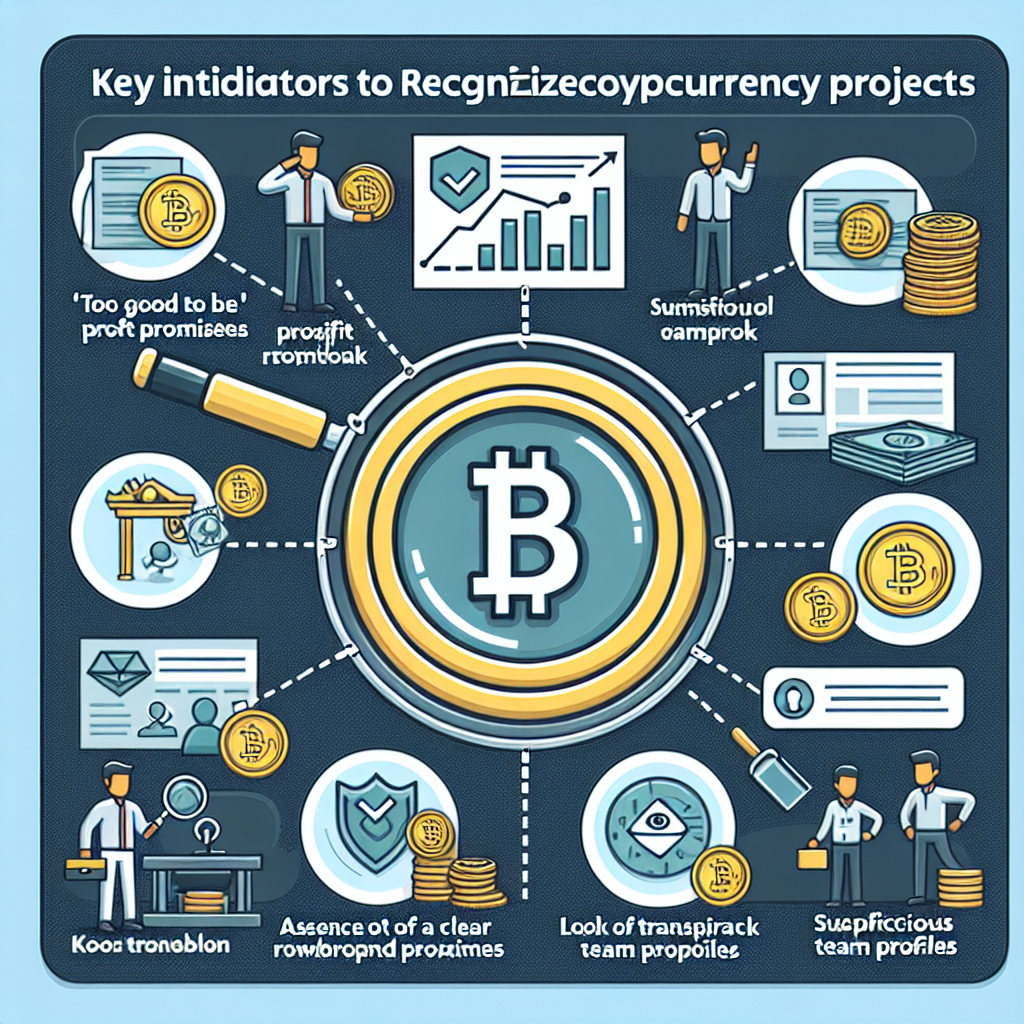How to Spot Fake Crypto Projects in the Market
The cryptocurrency market is buzzing with excitement and innovation, attracting investors and enthusiasts from all corners of the globe. However, this burgeoning landscape is also a hotspot for scams and fraudulent projects. In recent years, the rise of fake crypto projects has resulted in significant financial losses for investors. Understanding how to identify these scams can protect you from falling victim. This article will explore key indicators of fake crypto projects, providing you with the tools necessary to navigate this complex space cautiously.
Understanding the Crypto Landscape
Before diving into the telltale signs of fake crypto projects, it’s essential to grasp the broader cryptocurrency landscape. As of 2023, over 21,000 cryptocurrencies exist, with hundreds emerging every month. Many of these projects aim to solve real problems, but others are just imitations created to exploit unsuspecting investors. According to a report from the Blockchain Research Institute, about 20% of crypto projects launched in 2021 turned out to be scams.
Key Indicators of Fake Crypto Projects
As you venture into investing in cryptocurrencies, keep an eye out for the following warning signs that may indicate a project is fake:
- Unrealistic Promises: If a project offers guaranteed returns or unrealistic profit margins, proceed with caution. A common refrain in legitimate investments is “if it sounds too good to be true, it probably is.”
- Anonymity of Founders: Projects led by anonymous teams or those that do not provide clear information about their developers and founders should raise red flags. Transparency is a hallmark of credible blockchain projects.
- Poor Whitepaper: A legitimate crypto project usually comes with a comprehensive whitepaper detailing its purpose, technology, and roadmap. If a project has a poorly written or vague whitepaper, or none at all, it’s likely not worth your investment.
- No Online Presence: Authentic projects usually maintain an active presence on social media and cryptocurrency forums. Lack of engagement, updates, or contact information can indicate a scam.
- High Pressure Tactics: Be wary of projects that pressure you into making quick decisions or investing immediately. Scammers often create a sense of urgency to diminish a person's ability to do thorough research.
- Suspect Tokenomics: Examine how tokens are distributed. Projects with an excessive amount of tokens allocated to founders or early investors may be setting the stage for a pump-and-dump scheme.
Case Studies of Notorious Scams
The crypto space has seen several high-profile frauds that serve as cautionary tales for investors:
- BitConnect: Once a popular lending platform, BitConnect was shut down in January 2018 after being revealed as a Ponzi scheme. Investors lost an estimated $1 billion, illustrating the importance of due diligence.
- OneCoin: Billed as a revolutionary project, OneCoin was exposed as a multi-billion dollar scam, defrauding investors globally and featuring heavy marketing tactics without a real product.
- PlusToken: Once touted as a promising crypto wallet, it turned out to be a scheme that bilked investors out of over $2 billion before collapsing.
Protecting Yourself from Scams
To safeguard your investments, consider adopting the following strategies:
- Conduct Thorough Research: Always investigate a project’s fundamentals, including its team, technology, and roadmap.
- Diversify Investments: Spread your investments across multiple projects and reduce risk by not putting all your capital into one asset.
- Stay Updated: Follow reputable news sources, forums, and social media discussions to stay informed about the latest developments in the crypto space.
- Consult Experts: Reach out to experienced investors or financial advisors who can provide insights and guidance.
Conclusion
The allure of cryptocurrency investment can tempt anyone to jump in without proper caution. However, by being aware of the key indicators of fake projects, you can shield yourself from scams that plague this space. Conduct thorough research, stay informed, and consult experts whenever necessary. Remember the adage: in the world of investments, particularly in cryptocurrency, prudence often pays off. Your best defense against fraud is knowledge and vigilance.




